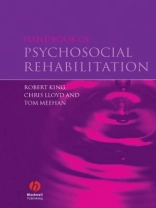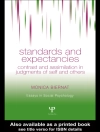The Handbook of Psychosocial Rehabilitation is designed as a clinical handbook for practitioners in the field of mental health. It recognises the wide-ranging impact of mental illness and its ramifications on daily life. The book promotes a recovery model of psychosocial rehabilitation and aims to empower clinicians to engage their clients in tailored rehabilitation plans. The authors distil relevant evidence from the literature, but the focus is on the clinical setting. Coverage includes the service environment, assessment, maintaining recovery-focussed therapeutic relationships, the role of pharmacotherapy, intensive case management and vocational rehabilitation.
Table of Content
1. Key Concepts and Definitions.
2. Major Mental Illness and its impact.
3. Lived experience perspectives – Helen Glover.
4. The framework for psychosocial rehabilitation: bringing it
into focus – Lindsey G. Oades and Frank P. Deane.
5. Building and maintaining a recovery focused therapeutic
relationship – Frank P. Deane and Trevor P. Crowe.
6. Individual assessment and the development of a collaborative
rehabilitation plan.
7. Integrating psychosocial rehabilitation and pharmacotherapy –
Tom Meehan, Shane Mc Combes and Terry Stedman.
8. Family psychoeducation.
9. Intensive case management in psychosocial rehabilitation.
10. Community participation – Chris Lloyd and Frank P.
Deane.
11. Vocational rehabilitation.
12. Mental illness and substance misuse.
13. Early intervention, relapse prevention and promotion of
healthy lifestyles.
14. Service evaluation.
15. The well-being and professional development of the
psychosocial rehabilitation practitioner
About the author
Robert King leads a multidisciplinary Graduate Mental Health programme and Chris Lloyd is Senior Lecturer for the Division of Occupational Therapy, both at the University of Queensland, Australia. Tom Meehan is also affiliated with the University of Queensland and heads a Research Unit at The Park, Centre for Mental Health in Brisbane.












